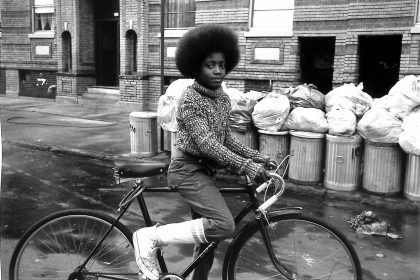
Hercules was the slave of America’s first president, George Washington. Hercules was allowed to roam the streets of Philadelphia, which was then the capitol of the country, without being challenged. Because of his privileged status as Washington’s cook, he dressed in fine clothes and was allowed to generate an income. Washington held little regard for his White cooks and wrote about them as being “Dirty figures …. They would not be a pleasant sight [as the kitchen always will be] in view.”
Purchased at the age of 13, Hercules had four children and was well known in Philadelphia during the 1790s. He was allowed to sell what was known as “kitchen slops,” which included animal skins, used tea leaves, and rendered fat left over from meal preparation. Usually, this honor was given to top chefs. It allowed Hercules to make a tidy sum of $200 in a year’s time. He used part of this income to buy his storied wardrobe — a velvet-collared blue cloth coat with bright metal buttons, and a pocket watch dangling from a long fob.
He learned some of his skills from James Hemings, a slave who belonged to Thomas Jefferson. Jefferson had Hemings trained in Paris while Jefferson was there with his slave mistress Sally Hemings. James Hemings was eventually allowed to purchase his freedom and remained Jefferson’s chef.
The important fact to note is that Philadelphia had a thriving population of free Blacks as well as slaves. Hercules intermingled with both and knew what it meant to be free. He was not content with being a slave and escaped numerous times from Washington. Each time, he was returned to cook in the kitchen, and once as punishment, he was made a field slave doing hard labor at Washington’s Virginia plantation.
Like many slave owners in Philadelphia who brought their slaves from other states, Washington faced a serious problem. The Gradual Abolition Act allowed citizens of other states to only hold their slaves six months before they were declared free. To combat this, Washington would send his slaves illegally to his other plantations before the six months expired and then bring them back; this would once again start the six month countdown on freedom. Hercules discovered this in 1791 and attempted his first escape. Washington hired slave hunters to find his valuable property. This led to Washington signing the Fugitive Slave Act, which allowed slave owners to hunt their slaves down in any state and return them to bondage. Hercules was able to make his final escape on Feb. 22, 1797, and was never seen again.















